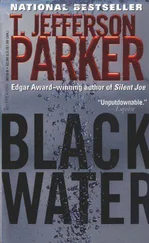‘Why’s he working for us? What’s in it for him?’ Harper asked.
Abang shrugged. ‘Decent type, family man, worried about PKI land grabs. The peasants are worried too because they are loyal to the old landowners. They don’t really get the idea of parcelling up the land even though they are going to get some. Komang isn’t a peasant though, far from it, and he should have been fine, he has status, but trouble is, his brother joined the PKI last year, it’s widely known. Once the round-ups of Communists start here, that whole family is in trouble.’
‘Can’t we get a message to the military? Leave him alone?’
Abang shook his head. ‘Doesn’t work like that here. It’ll be the local militia comes for him. Once that lot get going, they work pretty much on their own initiative.’
‘Ah.’ Harper took his own small, leather-bound notebook from his back pocket and a stub of pencil and, holding Abang’s notebook open with one hand on one knee and his own on the other, began to copy down the details in the tiny, illegible scrawl he had developed for himself, a personal mix of English, Dutch, Indonesian, some Javanese he knew and a few words and abbreviations of his personal invention. If his notebook fell into the wrong hands — well, good luck to the man who had to try and decipher it.
When he looked up, he saw that Abang had gone to the open door that led out to the front porch and was leaning against the doorpost, looking out, silhouetted in the light from the garden, a bulky man with something of a paunch, a half-distracted air. He gave the impression of solidity, trustworthiness — even geniality in different circumstances, Harper thought: a favourite-uncle type. Abang lit a kretek and then stood staring out towards the street, smoking. Harper had a feeling he was thinking about the young woman who had beaten such a hasty retreat as they arrived, wondering what would happen to her once he had left, perhaps? Then Abang glanced back and caught Harper looking at him.
‘Sorry.’ He patted a pocket.
‘It’s okay,’ Harper said. ‘In a bit.’
Abang drew on the cigarette. ‘I’m not sorry to be getting out of Denpasar before it all kicks off here, you know.’
‘I’ll be up country by then.’
‘Yeah, I wouldn’t count on it being much better up there, you know. Once you’ve warned Komang, it’s up to you, take whichever route you like, scout out the highlands, observe and take notes, just make sure you don’t stay more than two nights in any one place. I would say you’ll be here for a few weeks at least, unless Amsterdam in its wisdom changes its mind. What are your contact arrangements?’
‘I’ll have to come back to Denpasar. They know I’ll be out of contact for a bit.’
‘Good one,’ Abang inclined his head.
It was every operative’s favourite kind of job; freedom of movement and using his own initiative.
Abang smiled. ‘You’re not a romantic, are you?’
Harper looked at him, a query.
‘I mean, you’re not the kind of person who is taken in by the landscape? Sorry, of course you’re not.’ He tipped his head back and exhaled smoke in a sharp, upward stream. ‘You’re not like Joosten and the others.’
What Abang meant was, you’re not a fool. You won’t think that because a field is green and has a pretty woman with sleek black hair bending to harvest it that that means you can let your guard down. You’re not so stupid as to believe — like all those operatives back home — that ugly things can’t happen in beautiful places. What Abang meant was, you’re not white.
‘No,’ said Harper, bending his head back to the notebooks, ‘I’m not.’
The next morning, he woke after sunrise on the low day bed in the corner of Abang’s sitting room. From the back porch, there was a clanking sound and the tuneful murmur of Abang singing a low, indistinguishable song.
He had slept deeply: the light striped through the shutter slats in bright white. He threw back the sarong Abang had given him, sitting and stretching: both arms, bending them at the elbows, arching his back, then circling his head first one way then the other. He looked down at his torso, examining a livid bruise on his ribcage — the swelling had gone down and the deep red edge of it was spreading into purple and yellow tracery, like lace. His cock rested small and limp against his left thigh and he thought, not for the first time, it could have been a lot worse . On more than one occasion in the years to come, as an older man, he was to remember the speed of his recovery after the Jakarta incident and how much he had taken it for granted: the easy belief he had back then in his own powers of survival, the rapidity with which bruises faded and the confidence, the elasticity of youth.
He stood and wrapped the sarong round his waist, pulled on the T-shirt he had left at the end of the day bed. He hadn’t told Abang about the beating. He was planning on not mentioning that in his reports. Gregor’s first question would be, why didn’t you take better evasive action if there was a riot going on? Whatever happened to any operative in the field, Gregor always liked to let them, and everyone else, know that it was their own fault.
Abang was frying rice in a wok on the stone stove at the far end of the porch. As Harper wandered out, running both hands through his hair and scratching at his scalp, Abang saluted him with the wooden spatula, then scraped the rice onto two tin plates. He took the cloth from his shoulder and used it to pick up one of the plates and hand it to Harper.
‘Here, adik ,’ he said with a smile. ‘Careful, it’s hot.’
‘Thank you.’
He sat down on the step, the plate balanced on his knees on top of the cloth, and began to eat, pinching the rice with his fingers. Abang took the skillet out into the garden and turned it upside down, banging it with the wooden spatula so that the scraps would fall in the yard for the two chickens pecking in the dirt. Then he brought his own plate over and sat down next to Harper. In the small scrubby garden beyond the yard, through some bushes, Harper could see a vast and muddy pig lying asleep on its side in a makeshift wooden corral, motionless but for the long hairy curve of its stomach inflating and deflating.
‘Your pig?’ he asked, nodding at it.
Abang shook his head. ‘Next door’s pig. Can’t believe it’s still alive, not much longer I don’t think. Want to know how much I had to pay, for that bag of rice, I mean?’ He tossed his head backwards to wherever the bag of rice was hidden. ‘A thousand rupiah, last me a couple of weeks maybe, just me, no family, although I’m a big eater, it’s true. I guess a local family would spin it out the month.’
Harper nodded, balling the rice neatly before lifting it to his mouth. Abang had thrown in some lime leaves and chopped chilli with seeds: all it needed was a bit of fried fish, an egg on top, perhaps. Didn’t Abang’s chickens lay eggs? Still, he wasn’t going to complain: in comparison with the claustrophobic Hotel Indonesia and the burnt-rubber smell of Jakarta, this was like being on holiday with an old friend.
‘Want to know what the schoolteachers here get paid a month?’
Harper nodded again.
‘Five hundred rupiah.’
Next to the stone oven, Abang’s bag lay, a large cloth bag with outside pockets. He was already packed.
They both shook their heads as they ate, sitting on the step next to each other looking out at the garden and the pig sleeping pantingly; dreaming, perhaps, of kitchen scraps and unaware of its impending fate. We are like that pig, Harper thought, tucking into our rice for breakfast. Isn’t that all anyone really thinks about, where the next meal is coming from? And if you know it’s coming, isn’t it easy to believe that it is all you need? But if you don’t know when or where your next meal is coming from, then it is the only thought to possess you. One thousand rupiah for a bag of rice, when a teacher earns half that much? How did anybody stay alive? No wonder the country is falling apart, he thought. When rice is that expensive, human beings are cheap.
Читать дальше












